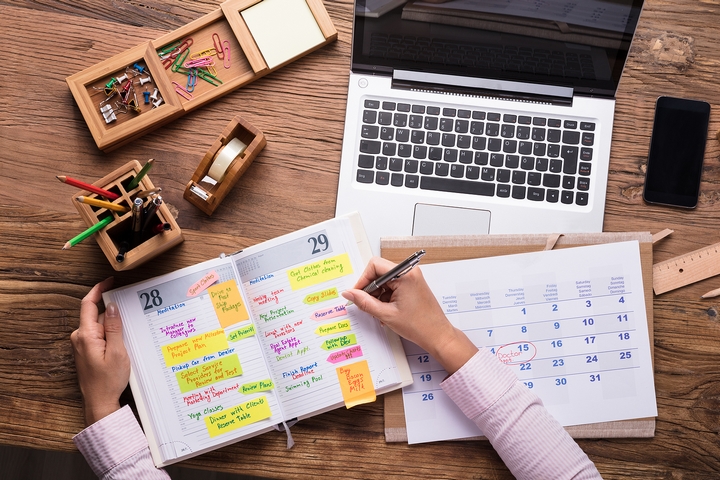Ever since the COVID-19 pandemic started, many employees have transitioned to a new lifestyle of working from home. Initially, this was meant to be a temporary arrangement to enforce social distancing rules in the workplace. Over time, we have grown fond of the comfort and convenience in our home offices. As we recover from the ongoing pandemic, working from home might just become the new norm for a lot of companies.
Working from home has its apparent benefits, including a more relaxed atmosphere for the employees. However, navigating this new work arrangement comes with plenty of questions, doubts, and uncertainties. Also, we might face challenges with communication and collaboration when working remotely from our peers. This can contribute to our stress of working from home.
During this unprecedented pandemic, it’s important to keep tabs on our mental health. Counselling services are readily available to help us deal with the stress of working from home. Even though working remotely might be stressful at times, there are positive ways to cope with these feelings. Whenever you feel frustrated by working from home, check out these six tips on how to deal with stress at work:
Tip #1: Create a business-like atmosphere working from home

As you work from home, the distinction between your personal life and your work life becomes opaquely blurred. You may feel troubled by the lack of separation with these two areas often overlapping. We want to feel casual and comfortable in our personal life, but we also want to come across as professional and poised in our work life. When we are unable to set boundaries between work and home, this can be a leading source of stress.
A great working from home tip is to separate your job from your personal life. The goal here is to mark the differences between your home and your home office. Perhaps you can create a separate workspace in your home, which will help you get into a professional mindset. You can also dress up more formally during work hours. The professional attire sends a signal to your brain that you’re doing serious work, giving you more focus and clarity.
Tip #2: Communicate with your employers and work colleagues

You can feel like your own little island when working from home. On an uneventful workday, you may not have a chance to communicate with your boss or any fellow coworkers. The occasional business email about day-to-day work just isn’t the same as regular friendly socialization. Over time, this prolonged isolation may increase your stress of working from home.
An important tip is to remember that everyone goes through similar experiences when working from home. Let your manager know if you are feeling stressed at work. By sharing your struggles and asking for advice, you can grow closer to your employer during this time. You can also schedule a video call to socialize with your colleagues, perhaps during a morning coffee break or around lunch hours.
These lighthearted chats will be a great boost for your morale while you work from home. An important part of our post-pandemic lives is learning how to stay positive, so it helps to know that you aren’t alone and we’re all in this together!
Tip #3: Organize your work schedule in advance

Organization helps to clear your mind of the many uncertainties when working from home. Creating a work schedule helps you to stay focused on your goals without stressing about what comes next. A daily agenda lets you allocate time to complete certain tasks and responsibilities. Every time you finish a scheduled task, it gives you a sense of progress and fulfillment while working from home.
This work schedule can be done digitally through a scheduling app, although you can also write out your plans on a daily planner. Some people enjoy solidifying their plans in ink as a symbol of validation. Instead of crafting a daily schedule, you may also create to-do lists for your work. This checklist is a great idea to keep your schedule flexible, but still add structure and organization to your workday.
Tip #4: Pace yourself with the work

The pandemic has instilled a sense of urgency in everything that we do. With COVID-19 affecting many industries, there’s a need to stay competitive, keep up with business trends, and be informed of the latest news. This has created a fast-paced work environment, where you just want to rush ahead and get everything done at once. The constant adrenaline can be stressful for your mental health.
While moving forward with your work is a great thing, you should also take a step back and just breathe for a moment. Extend some grace to yourself with how much work you do each day. If you cannot get everything accomplished by the end of the day, don’t stress about it. Ask for help when you are overburdened with too much work. Your team is here to help you meet deadlines, achieve objectives, and lighten your individual workload.
Tip #5: Focus on activities to lower your stress

In your home office, it’s easy to lose track of time and continue working outside of regular hours. While working hard is a great attribute, maintaining the right work-life balance is important for your mental health. Working too hard can be stressful, especially when you occupy your personal time with work-related activities. At the end of each workday, make sure you take a moment to simply unwind and relax.
Focus on the activities that can lower your stress after a hard day of work. Read a book, listen to music, or binge several episodes of your favourite TV show. These simple activities can reinvigorate you emotionally, leaving you refreshed when you go back to work. If your stress levels ever become unmanageable, seek professional help with counselling treatments.
Tip #6: Don’t procrastinate with work

As an employee, you should be mindful of your project deadlines and work responsibilities. Working from home gives you more freedom and flexibility with your schedule, but that doesn’t mean you should leave everything to be done at the last minute. When you delay projects and procrastinate with work, you can become more stressed due to the mounting responsibilities.
Instead, make sure you do a fair amount of work each day and create a plan to tackle any upcoming deadlines. Being a diligent employee is an emotionally rewarding experience, which will be great for your morale. The satisfaction of doing a great job can make work feel infinitely less stressful.
If you’ve experienced stress, anxiety, or depression while working from home, our counselling services can prove helpful during your time of need. Get in touch with Kari Walton Counselling Services and we’ll connect you with one of our trusted consultants for professional advice.

